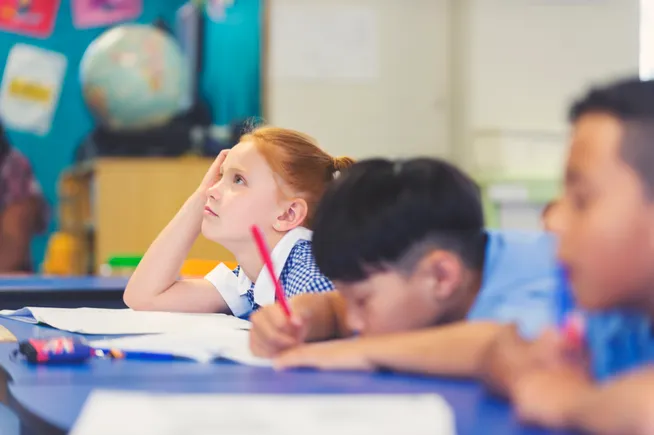Reflecting on the tenets that shape our educational practices is fundamental for …
Study shows that lack of focus and inattention lead to severe negative impact on student learning
Carlos Changemaker

The educational landscape in the 2023-24 school year continues to grapple with the lingering effects of the COVID-19 pandemic on student focus. A significant 25% of public school leaders have flagged a “severe negative impact” on student learning due to distractions and lack of concentration.
Among the recently gathered insights from the National Center for Education Statistics’ School Pulse Panel surveys, conducted between May 14 and 28 this year across 1,714 schools nationwide, this standout data point underlines the challenging scenarios faced by students and educators alike.
In line with the latest statistics, a comprehensive analysis of the School Pulse Panel’s key revelations on July 18 revealed that a noteworthy 87% of public schools offered some form of tutoring during the previous academic year, with almost half (47%) providing two or more types of tutoring services.
Furthermore, the data highlights that among the schools (46%) offering high-dosage tutoring, a whopping 90% reported a significant improvement in student outcomes, stating varying degrees of effectiveness.
As NCES Commissioner Peggy Carr succinctly put it, “The ramifications of the pandemic on student welfare persist, demanding heightened attention from schools.” She emphasized the importance of assessing the impact of tutoring services in conjunction with academic performance data from the forthcoming 2024 National Assessment of Educational Progress for a deeper understanding of students’ progress towards academic recovery.
The imminent release of the 2024 NAEP results in winter 2025 is poised to provide crucial insights into the educational landscape’s ongoing dynamics, shedding light on student achievement and the efficacy of intervention programs.
In addition to fostering student focus, crucial findings from the School Pulse Panel underscore several factors significantly affecting student learning, including academic readiness, classroom disruptions, lack of independent work, and physical unpreparedness, all contributing to the multifaceted challenges faced by educational institutions.
The repercussions of prolonged school closures during the pandemic, compounded by various socio-emotional factors, have resulted in a concerning surge in students’ mental health needs as they returned to in-person schooling post-crisis, aligning with observations from education experts.
A recent YouthTruth survey unveiled in May 2023 pinpointed a worrying statistic: 48% of middle and high school students identified mental health barriers impeding their learning during the 2022-23 academic year, representing a noticeable uptick from the previous year. Additionally, only 41% of students expressed comfort in confiding stress-related concerns to adults within the educational ecosystem.
The latest School Pulse Panel outcomes highlighted a pressing demand for enhanced mental health support within school communities, with 76% of school leaders flagging this necessity. Previous NCES data from May indicated that while nearly half of schools believed they could adequately provide mental health services to all students in need, the actual implementation of such services requires more comprehensive support mechanisms.
Experts are advocating for a holistic repertoire of strategies to bolster student focus and address their mental health and socio-emotional requirements effectively. Recommendations range from mindfulness and breathing exercises to incorporating social-emotional learning (SEL) elements into classroom curricula, thereby nurturing a conducive environment for students’ well-being and academic success.



